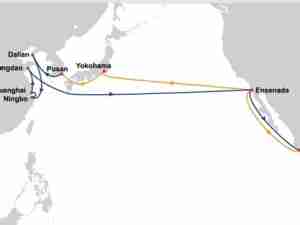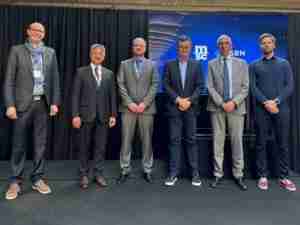This is likely to be true, in the short term at least, as Hanjin is controlled by the Cho family who owns 30% of the company. It is therefore unlikely that Ofer will be able to mount a quick takeover bid.
On top of this, Korea is a none-too-friendly place for takeover bids by non-Korean companies. While some took place in the late 1990s, the last few years have experienced a hardening of sentiment against foreign investors.
However, the South Korean government has recently indicated that it would support the rationalization of the Korean shipping industry, possibly through the takeover by Hanjin of smaller Korean container shipping companies. This is being driven by the consolidation of the container shipping industry, led by Maersk's take-over of P&O Nedlloyd and Hapag-Lloyd's purchase of CP Ships in 2005.
Hanjin is around the 8th largest container line, but is dwarfed by the largest players in the sector. It is now perceived in the sector that to be competitive container lines must achieve greater economies of scale. It is likely therefore, that Ofer is seeking to benefit from any such rationalization around Hanjin. Possibly he might be looking to reverse ZIM into such a new company.
Looking more widely at the container market, this move suggests that there is likely to be further merger and acquisition activity among container shipping companies in the near future. The three large Japanese companies - NYK, K-Lines and MOL are obvious candidates as are NOL/APL, Evergreen and OOCL. However, with all these companies, takeover activity will not be straightforward as their shareholders will be slow to give up the autonomy and cherished identities.
What might be worth noting, however, is that greater consolidation could lead to much less cyclicality and over-capacity in the container shipping sector. (M2 Communications, Ltd.)





